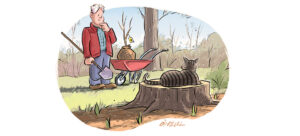
Love Your Heart
By Karen Frye
Your heart never takes a vacation. Pumping approximately 86,400 times a day, we trust that it will continue to work hard for us until we reach a ripe old age. There are practical things we can do to assist the heart in functioning its best and keep it going strong.
Heart disease is the leading cause of death in men and women, and it is also one of the most preventable. Be aware that the choices you make daily can drastically reduce your risk of developing heart disease, even if you have a family history. Eating more heart-healthy, anti-inflammatory foods and, of course, exercising top the list of smart things to do. A plant-based diet is a good one to follow, and the Mediterranean diet has many other benefits. There is the Keto, and the Paleo, and on and on. Find the one that fits you and your lifestyle. A little prevention will go a long way.
Unfortunately, the Southeastern part of the U.S. takes the lead for the highest rates of heart disease. This part of the country has the highest rates of obesity, but the whole country is getting fatter. Increased consumption of refined sugar and carbohydrates are mostly to blame. The average consumption of sugar per person, per year is over 150 pounds. Obesity can be a contributing factor to practically every health malady, and a good diet and regular exercise are the best antidotes.
Stress is another reason for deteriorating health. In fact, it can wreak havoc on you mentally and physically. While we can’t remove all the pressures of our lives, we can find ways to handle stress in a healthy way. Some simple ones are: yoga and meditation; taking a daily walk outside, and enjoying nature; knitting or singing — whatever you find that brings peace and calm feelings to you.
While it’s always important to consult your doctor before adding any supplement to your diet, here are a few suggestions to help keep your heart healthy:
Magnesium is a mineral that almost no one gets enough of in their diet. It helps to relax the arteries and makes it easier for the heart to pump blood throughout the body.
Vitamin C does more for the heart than I ever realized. Animals don’t have heart attacks because they produce vitamin C that protects their blood vessel walls. We have to add it to our diet or eat enough vitamin C-rich foods to protect our arteries.
Vitamin K — there are two forms. K1 is for normal blood clotting, while K2 is important for cardiovascular health. It transports calcium into the bones where it’s needed, and out of the arteries where it can cause atherosclerosis.
Coenzyme Q10 is a metabolic enzyme produced by the body, but it may be beneficial to add it in supplement form, especially if you are over the age of 50 or have a history of heart disease. It combats oxidative stress in the cells and strengthens the heart.
Omega-3 is a well-studied supplement for heart health. This essential fatty acid reduces the risk of heart attack and stroke. We have a major imbalance of fatty acids in our diet from consuming too much Omega-6 and not enough Omega-3, creating more inflammation. Supplementing with Omega-3 also helps raise our healthy cholesterol levels (HDL).
Your heart is so amazing. Keep it happy and healthy. PS
Karen Frye is the owner and founder of Nature’s Own and teaches yoga at the Bikram Yoga Studio.





